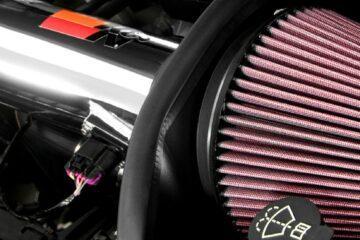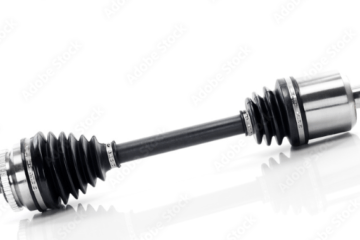As the weather heats up, it’s important to make sure your car’s air conditioning system is in good working order. Proper maintenance of your car’s air conditioning (A/C) system is essential to ensure it functions efficiently and provides cool air during hot days.
Car AC systems work on the same basic principle as household refrigerators. They use a refrigerant to absorb heat from the air inside the car and then release it outside. The refrigerant is a special gas that can change from a liquid to a gas and back again. When the refrigerant is a liquid, it absorbs heat. When the refrigerant is a gas, it releases heat.
The car AC system has four main components:
- The compressor: The compressor is powered by the car’s engine and it is responsible for circulating the refrigerant through the system.
- The condenser: The condenser is located in front of the car’s radiator and it is responsible for cooling the refrigerant.
- The evaporator: The evaporator is located in the car’s passenger compartment and it is responsible for absorbing heat from the air inside the car.
- The expansion valve: The expansion valve controls the flow of refrigerant through the system
The refrigerant flows through the system in a closed loop. The compressor first compresses the refrigerant, which makes it hot. The hot refrigerant then flows to the condenser, where it is cooled by the air passing over it. The cooled refrigerant then flows to the evaporator, where it absorbs heat from the air inside the car. The warm refrigerant then flows back to the compressor, and the cycle repeats.
Car AC Maintenance
Car AC systems require regular maintenance to keep them running properly. The most important part of AC maintenance is changing the air filter. The air filter helps to keep the AC system clean and free of debris. It should be changed every 12,000 to 15,000 miles or every year, whichever comes first.
Other parts of the AC system should also be inspected and serviced regularly. The hoses and seals should be checked for leaks. The compressor should be lubricated. And the condenser and evaporator should be cleaned.
If you notice that your AC system is not blowing cold air, it is important to have it checked by a qualified mechanic. There may be a problem with the compressor, the condenser, the evaporator, or the refrigerant.
Here are some tips:
- Change the air filter regularly. The air filter helps to keep the A/C system from getting clogged with dirt and debris. A dirty air filter can make it harder for the A/C system to cool the air, and it can also lead to the growth of mold and mildew.
- Have the system recharged every two years. The refrigerant in your car’s A/C system can leak over time, and as it leaks, the system becomes less effective at cooling. Having the system recharged every two years will help to ensure that it is always working properly.
- Inspect the hoses and seals regularly. The hoses and seals in your car’s A/C system can crack or leak over time. Inspecting them regularly can help you to catch any problems early on, before they cause more serious damage.
- Clean the condenser. The condenser, which is placed in front of the radiator, is part of the A/C system that cools the refrigerant. It can become clogged with dirt and debris, reducing its efficacy. It will last longer if you clean it on a regular basis with compressed air or a mild hose spray.
- Check A/C Belts:
Inspect the A/C belts for signs of wear, cracks, or fraying. Replace them if necessary to ensure the A/C compressor functions correctly. - Keep the Cabin Filter Clean:
Check and replace the cabin air filter regularly (usually every 12,000 to 15,000 miles or as per the manufacturer’s recommendation) to maintain proper airflow and air quality inside the car. - Have the system serviced by a qualified mechanic at least once a year. A qualified mechanic can inspect your car’s A/C system for any problems and make sure that it is working properly.
- Run the A/C system for 10 minutes every week, even in the winter. This will help to keep the system lubricated and prevent the seals from drying out.
- Avoid using the A/C on high heat. Using the A/C on high heat can put a strain on the system and shorten its lifespan.
- Test for Proper Cooling:
Regularly check if the A/C system is providing adequate cooling. If you notice reduced cooling performance, strange noises, or unusual odors, have it checked by a professional.
A/C maintenance and troubleshooting common issues:
1. Insufficient Cooling or the A/C blows hot air.
This may be caused by a reversed refrigerant charge, a faulty expansion valve, or a dirty evaporator.
Ensure the A/C system is set to the correct cooling mode.
Check for refrigerant leaks and have them repaired.
Verify the condenser is clean and not obstructed by debris.
2. Strange Noises:
Unusual noises could indicate issues with the A/C compressor or other components.
This may be caused by a faulty compressor, a loose belt, or a bad bearing.
Have a mechanic inspect the system for problems.
3. Foul Odors:
A musty smell often indicates mold or bacteria growth in the A/C system or in the evaporator. Cleaning or replacing the cabin air filter and performing an A/C deodorizing treatment can help.
4. A/C Not Working at All:
Check the A/C fuse to see if it’s blown.
These fuses are usually in a fuse box in your engine bay, but sometimes they can be found in a fuse box inside your cabin, often on a kick panel or low on your dashboard. The last problem you may encounter that has a quick AC fix for your vehicle is a slow leak
Inspect the A/C compressor clutch for engagement.
Have a professional perform a thorough diagnosis to identify the issue.
Remember that working on automotive A/C systems can be complex and often requires specialized knowledge and equipment. If you encounter significant A/C issues or are uncertain about troubleshooting, it’s best to seek assistance from a qualified automotive technician. They can diagnose the problem and perform any necessary repairs to get your A/C system running smoothly again. - Regular Maintenance:
Schedule regular A/C system check-ups with a qualified mechanic to inspect for leaks, proper refrigerant levels, and overall functionality.
Follow the manufacturer’s recommended service intervals for A/C maintenance.
By following these simple tips, you can help to keep your car’s A/C system running cool and comfortable all summer long.



